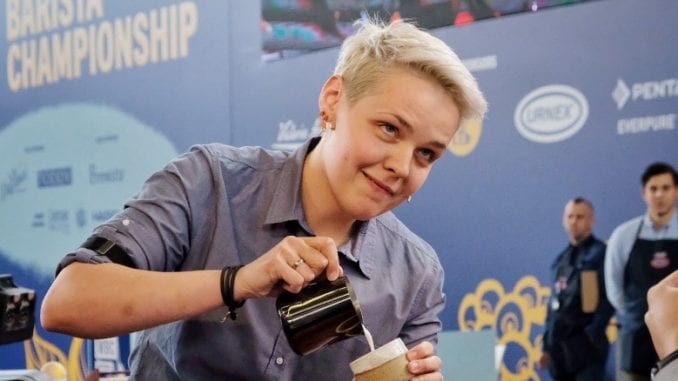
Agnieszka Rojewska, the first female World Barista Champion in the competition’s 19-year history, shares her approach to this year’s contest, her reaction to winning, and much more.
BY CHRIS RYAN
BARISTA MAGAZINE ONLINE
Photos courtesy of World Coffee Events
Since 2011, Agnieszka Rojewska has been a mainstay in coffee competitions, taking part in more contests than perhaps any other barista in the world. From barista competitions to Brewers Cups to Latte Art Championships and beyond, Agnieszka has devoted her time and energy to competitive coffee on both the national and international stages.
The National Barista Champion of Poland appeared in her first World Barista Championship in 2015, when she placed 34th in Seattle; the next year, in Dublin, she finished in the exact same spot. She didn’t compete in the barista competition in 2017, but she returned with force in 2018, leveraging her experience and savvy to win the 2018 World Barista Championship. With the win, she became the first woman to ever earn the title. We talked to Agnieszka about her approach to this year’s competition, how it felt to win the title, and her advice to barista competitors.
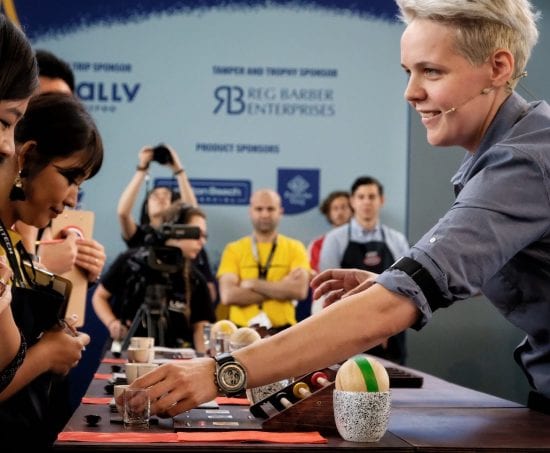
Chris Ryan: Can you tell me about your approach to the WBC this year? I know you are a veteran competitor; did you prepare for this one any differently?
Agnieszka Rojewska: I think that this year was a bit different because I knew this would most likely be my last WBC ever, or just the last one before a long break. I wanted to get my message really clear and close to me, and I also wanted to enjoy the experience and not make [my routine] overly complicated. I wanted the time on stage to be fun—of course, as much fun as you can have under the pressure of being judged by people you probably don’t know.
CR: Is it important to you to be innovative in competition? I’m thinking of the table your dad made, for example, that you had to build on stage. Why is it important to you to have creative elements like that in your presentation?
AR: No. 🙂 I think that innovation and creativity should be used to help you achieve the goals of your presentation. I wanted to get good customer service, and to do that I needed great connection with my customers—aka, my judges. In order to do so, I wanted to be in front of them most of the time, not turn my back on them, and not run to other tables for stuff. But at the same time, I didn’t want to have a messy table. So I think it’s good to incorporate creative elements, but they need to have a reason and be useful to the presentation.
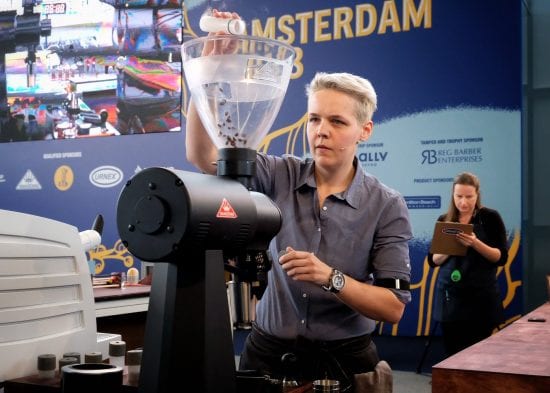
CR: How would you describe your 2018 WBC experience? What did you learn from it?
AR: Exciting and fun—those words say it all. What I learned was: Expect nothing, everything is possible.
CR: Can you describe how you felt the moment your name was called as the winner?
AR: The moment they called my name, I had already known I had won for a few minutes, and I had those few minutes for me so Lex [Wenneker] could be celebrated as runner-up.
So actually the most shocking and surprising moment was when they called Lex’s name. I don’t have a very clear memory from that moment. I remember they called his name, and he went for his trophy and I was there alone. I looked at my team backstage and girls were jumping so I moved toward them. They ran to me … and in my head there was only, “What? What did they say?” It is still like … it didn’t happen and it is just in my head. … So I tend to check the results on the website from time to time.
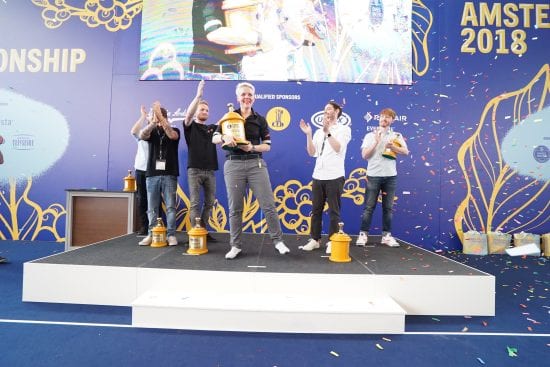
CR: I know you’ve been asked this question a lot, but what does it mean to you to be the first woman WBC winner?
AR: I guess it is a lot of pressure and responsibility. I would love to use this title to make something for all the women in the industry, but as for now I don’t know where to start.
CR: Do you have any advice for current and future competitors?
AR: Be yourself and don’t give up. Competing might be hard and will make you upset from time to time, but stay yourself, be patient, and learn; the rest will come.
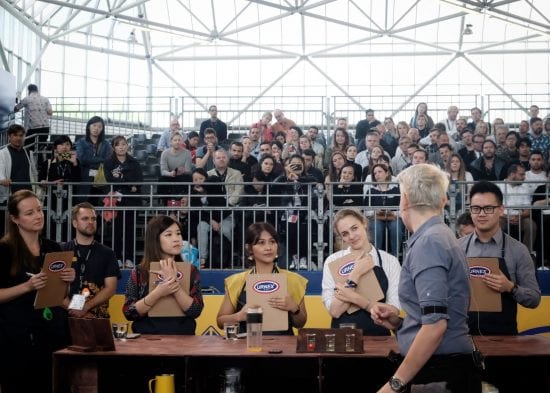
CR: Is there anything more that you want our readers to know?
AR: Apart from that “very serious” World Barista Champion title, I’m still the same person. I make bad jokes; I’m very shy and scared of big groups of people. But if you ever meet me and want to ask me something or just say hi, do it. I’m still one of you: baristas. 🙂

